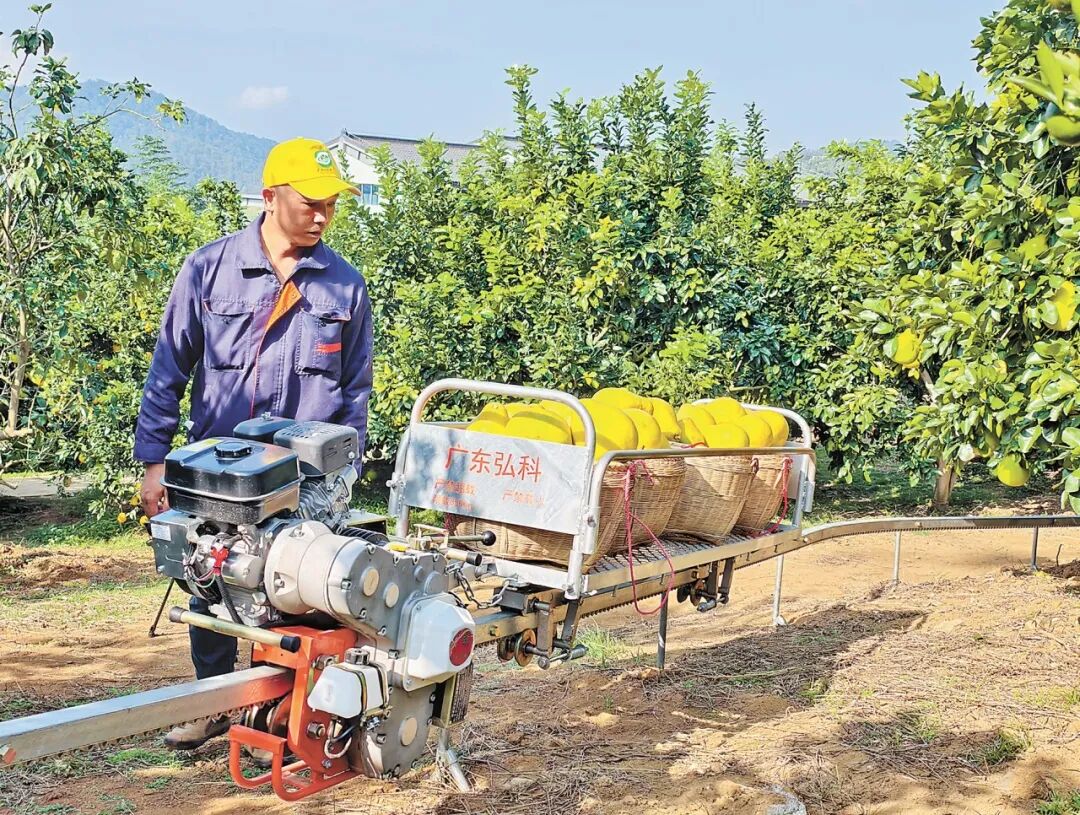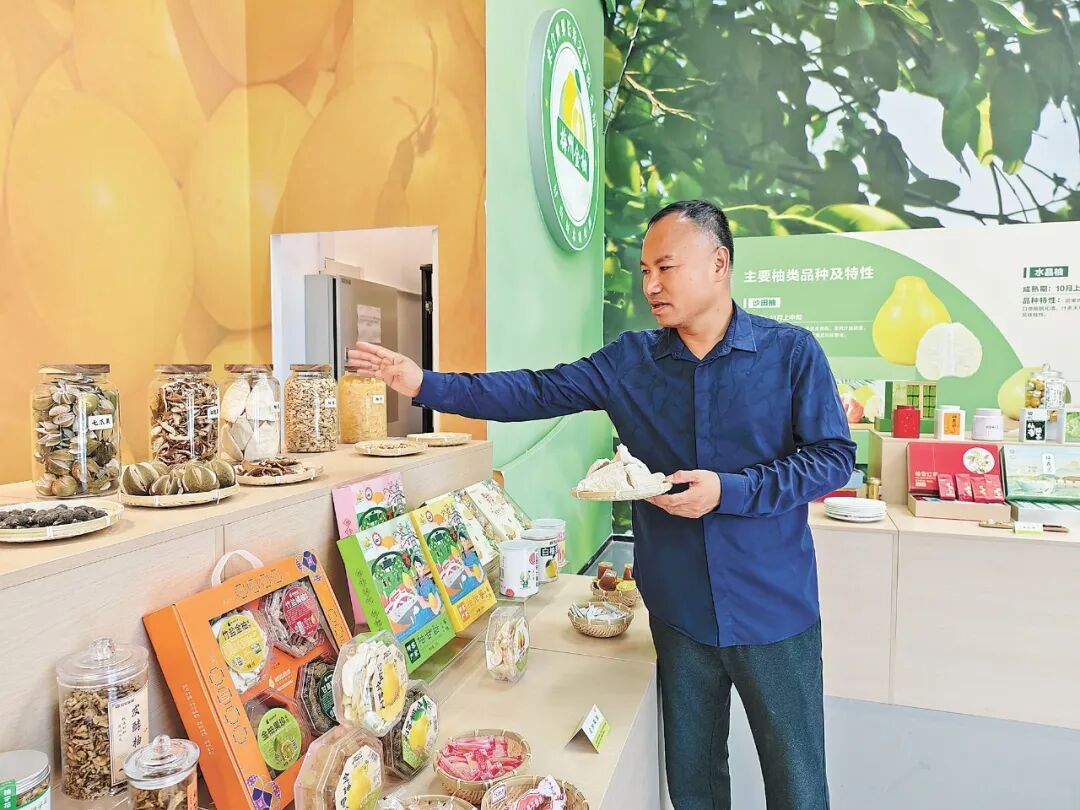




- BRNN
- BRI News
- BRNN News
- Database
Official Documents Polices and Regulations
Inter-government Documents International Cooperation BRI Countries
Business Guide Economic Data BRI Data
Trade
Investment Projects Latest projects
Cases - Content Pool
On Nov. 7, 2025, Chinese President Xi Jinping, also general secretary of the Communist Party of China Central Committee and chairman of the Central Military Commission, visited the Nanfu pomelo growing base in Yanyang township, Meixian district, Meizhou city, south China's Guangdong Province, where he was briefed on Guangdong's efforts to step up support for old revolutionary base areas and advance all-around rural revitalization, among others.
He checked on pomelo growth and reviewed processed and cultural and creative products derived from the fruit. Xi then went into the orchard and had a cordial exchange with the fruit farmers and agricultural technicians.
He pointed out that developing rural industries with local characteristics is fundamental to promoting rural revitalization across the board. Xi called for efforts to boost sci-tech application, promote the integrated development of culture, agriculture and tourism, extend the industrial chain and enhance added value, so as to secure higher incomes for more rural residents.
Huang Hong, a pomelo farmer from Nanfu village, was deeply encouraged. "The general secretary's words struck a chord with us," he said.

A farmer uses a monorail transport vehicle to transport pomelos in Nanfu village, Yanyang town, Meixian district, Meizhou city, south China's Guangdong Province. (People's Daily/Cheng Yuanzhou)
In the 1980s, Meizhou began encouraging residents to plant pomelos, and Nanfu village launched large-scale cultivation of the fruit trees. "Back then, my father took care of 45 pomelo trees. When I took over a decade ago, our orchard had expanded to 80 mu (about 5.33 hectares)," Huang recalled.
"Compared with my parents' generation, who had to run all over the hills to irrigate and fertilize, we can now handle these tasks while sitting at home drinking tea, thanks to an integrated water and fertilizer spray system," he said.
Gone are the days of carrying pomelos on shoulder poles. Today, drones loaded with pomelos zip overhead, while monorail transport vehicles capable of hauling more than 350 kilograms shuttle through the orchard.
"These are smart sensors that collect real-time data on soil moisture, temperature, and weather conditions. After analysis through a smart agriculture platform, reports are sent to my phone with reminders about irrigation and fertilization. These are intelligent pest-monitoring lamps that automatically track insect activity 24 hours a day, enabling early prevention and science-based pesticide use," Huang said. "A few years ago, I never imagined I could manage a pomelo orchard with just a smartphone," he added.
His 80-mu orchard is expected to yield 350,000 kilograms this year. The high sugar content and excellent appearance of his pomelos owe much to Zhong Yonghui, head of the institute of agricultural sciences in Meixian district.
In recent years, Meixian district has organized agricultural experts to provide technical guidance for farmers, promoting scientific fertilization, green pest control, and virus-free seedling cultivation to further improve pomelo quality.
Nanfu village now has 450 pomelo-growing households cultivating more than 5,000 mu, generating annual revenue exceeding 50 million yuan (about $7.02 million).
Huang Kaizhi, Party chief of the village, noted that thanks to the pomelo industry, Nanfu village has been selected as a model village under Guangdong Province's "High-quality Development Project for Counties, Towns and Villages."

Li Yongsheng, president of the pomelo association of Meixian district in Meizhou city, south China's Guangdong Province, introduces pomelo-derived products. (People's Daily/Cheng Yuanzhou)
The village has extended the pomelo industry chain by producing pomelo-derived products such as essential oils, naringin, and dried pomelo peel.
"Extending the pomelo industry chain opens up broader market prospects," said Li Yongsheng, president of Meixian district's pomelo association. "Take pulp processing as an example—beverage companies in the Pearl River Delta place orders for 500 tonnes at a time," he said, noting that Meixian district has become China's largest commercialized pomelo production base and distribution center.
Across Meizhou city, in 2024, the total output value of the pomelo industry chain surpassed 8.9 billion yuan, helping more than 100,000 farming households increase their incomes.
In Nanfu village, the pomelo industry has also boosted rural tourism, attracting waves of visitors and enabling pomelo farmers to earn income year-round instead of only during the harvest season.

Tel:86-10-65363107, 86-10-65368220, 86-10-65363106